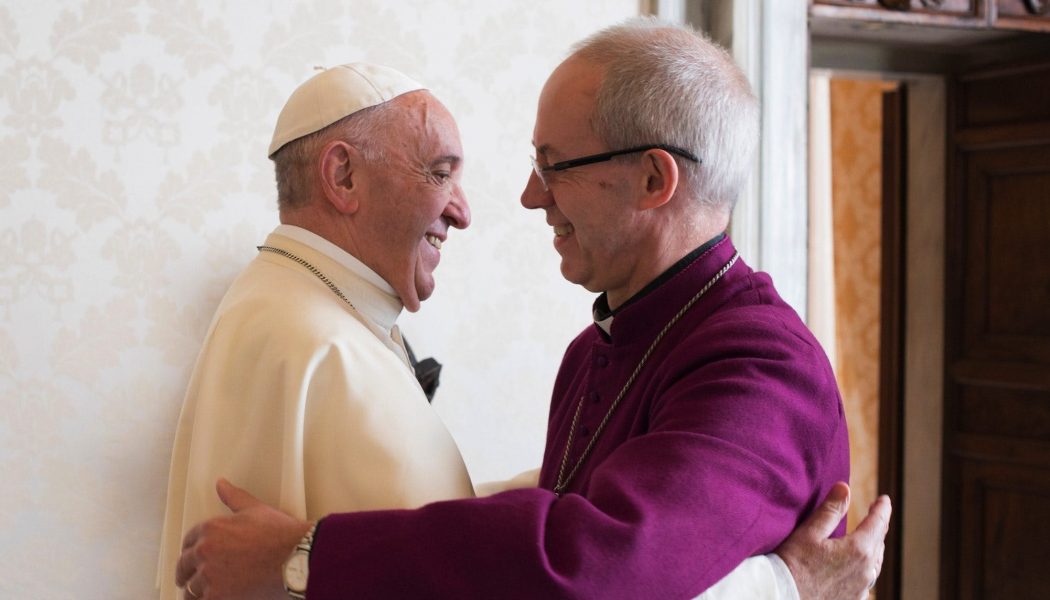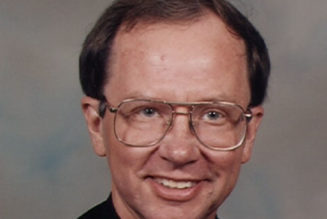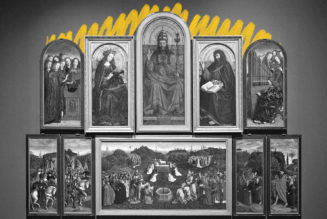
Ecumenical optimists believe that Christians must find ways in which they agree with the other guys and build on those. Ecumenical partisans believe that Christians can’t find such agreements – not meaningful ones, anyway – and must maintain the space between themselves and the other guys. Both get it right and get it wrong, because they don’t understand how ecumenical friendships work.
Catholic apologists will declare that Jesus wanted the Church to be one, but Protestants have thousands of churches (Ha!). Protestant apologists will dismiss some of Catholicism’s central dogmas with “That’s not in the Bible,” said with the confidence of someone throwing down a royal flush.
Neither tries to see why the others believe what they do and think they are being faithful Christians in believing it. The Catholic, for example, doesn’t stop to think that the Protestant may have an understanding of the Church’s “oneness” that is not dependent on institutional unity.
Optimism works in the opposite direction. Catholics excited about how much their Evangelical friends know the Bible will often say that in their Bible-reading the Evangelicals put Catholics to shame. Sometimes, they assert a Protestant claim because the Protestant knows the Bible so much better. Sad, but true.
Both partisans and optimists see one truth, but miss the truth the other sees. Look at these two cases from the Catholic side. The Catholic should see that Protestant ecclesiology makes sense, and that it gets at something right about our fellowship with other Christians. Our Protestant friends are neither stupid nor unfaithful. At the same time, they reject the Church as Jesus gives it to us, and they lose a lot that we want them to have. They’re outside something which they should be inside, for their own happiness.
The Catholic should also admire Protestants’ deep commitment to Scripture and their gifts in reading it well. If ignorance of Scripture is ignorance of Christ, they may know Jesus better than we do. At the same time, they don’t know everything Scripture teaches, and don’t get quite right many things they do see, because they don’t read it with the aid of the developed Tradition. The Bible they know isn’t quite the Bible as it’s been given to us, the one that forms with Sacred Tradition “one sacred deposit of the word of God”.
The point of division keeps shifting and can’t be settled at a single place or derived from a simple formula. The answer is always a matter of yes and no, or here and there, or even here one moment and there the next.
We don’t give up the work of finding that moving point of agreement, because friends want to agree. It’s also the point where the differences matter and can make the people on the other side angry. Catholics believe that intercommunion, for example, is unacceptable, and that people marrying outside the Church must promise to raise their children within it. The first especially can deeply offend Protestant friends, but it can’t be denied or mitigated.
The relation is primarily personal, not theoretical, because the theoretical can’t be settled to both sides’ satisfaction. Not without one side giving up its distinctiveness, anyway. The differences go much too deep for that. It’s primarily personal in that we recognise each other as real friends of Jesus, and accept that He loves those other friends even though they’re actually wrong about what He says and wants.
Except for those times we have to take up the differences, we do as much as we can with our friends on the other side. We’re both friends of our great friend and that means we can be friends too.
It’s not easy and apparently many people can’t do it. Or won’t. Some become hard partisans, some boundless optimists. Both dissolve the tension: one by exploding it, the other by collapsing it.
A hardcore Calvinist follows me on Twitter and sometimes makes snide remarks about my Catholic writing. He is one of those who can’t set differences aside. In response to a column for Aleteia about the way people come to believe the Catholic teaching about Mary through being a Catholic, he tweeted, “Frog in the kettle” (meaning we can gradually become accustomed to something that will kill us).
That would be true for anyone who entered a developed way of life with a particular and complex understanding of the world. (This is all Newman 101.) You almost certainly enter with questions unanswered and many things only partly understood, and others you do not yet know about. The entry may be perfectly rational, because you see that here truth is found, here is the place I must be. But that judgment precedes agreement with every particular point and knowledge of the whole thing.
This would be as true of someone entering my follower’s Orthodox Presbyterian Church as someone entering the Catholic Church. Both begin with milk, as St Paul put it (1 Corinthians 3:2). Both must grow through obedience towards what he called “the measure of the stature of the fullness of Christ” (Ephesians 4:13).
One man’s slowly boiled frog is another man’s maturity. When the other man is another friend of Our Lord’s, we’d do better to assume he’s a grown-up than assume he’s a cooked frog.
David Mills, former executive editor of First Things, is finishing The Catholic Death, to be published by Sophia









